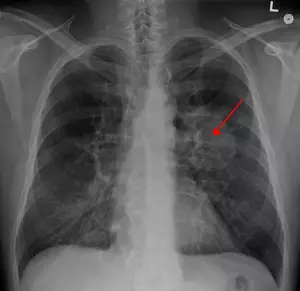What Can I Do To Prevent From Lungs Cancer
Table of Contents

The most important thing you can do to prevent lung cancer is to stop smoking—but it’s not the only thing. Because many people think of lung cancer as a “smoker’s disease,” you may be unaware of other risk factors like radon and occupational exposures.
Half of all people who develop lung cancer are former smokers or have never smoked. In addition, 10% to 15% of all lung cancer diagnoses in the United States are in people who have never smoked.
Whatever your smoking history, it is critical that you do everything possible to reduce your and your family’s risk of lung cancer. It is never too late to begin reducing risk factors and making lifestyle changes that can aid in the prevention of this disease.
Stop Smoking
As obvious as it may seem, quitting smoking is the single most effective way to prevent lung cancer, whether you’ve smoked for a year or decades. According to studies, cigarette smoking is the direct cause of up to 90% of all lung cancer cases.
Toxic substances found in cigarette smoke include formaldehyde, benzene, and arsenic. These chemicals have the potential to cause cancer as well as increase the risk of other respiratory diseases.
This includes chronic obstructive pulmonary disease (COPD), which is the third leading cause of death in the United States and a risk factor for lung cancer in its own right.
No matter how long or heavily you smoked, every year you stay smoke-free reduces your risk of cancer and improves your health.
Avoid Secondhand Smoke
Every year, approximately 7,000 people in the United States are diagnosed with lung cancer as a result of secondhand smoke. Furthermore, living with a smoker increases your risk of developing lung cancer by 20% to 30%.
Most states’ smoking laws have made it easier to avoid secondhand smoke, but there are some things you can do to reduce your risk of exposure even further:
Look for smoke-free hotels, restaurants, bars, and car rental agencies.
Visitors should not be allowed to smoke in your home or car.
Request that friends, family, and caregivers refrain from smoking in the presence of you or your children.
Teach your children the dangers of secondhand smoke and how to avoid it.
Help Prevent Your Kids from Smoking
According to the Centers for Disease Control and Prevention (CDC), most adult smokers started smoking at the age of 11 and were hooked by the age of 14.
Regardless of how hard you try to persuade your children not to smoke, they are bombarded with images in advertisements and movies that make smoking appear “cool.” Peer pressure is another factor that frequently comes into play.
To help mitigate these influences, consider the following:
Act quickly: Most 5- and 6-year-old children have the comprehension skills to understand that smoking is bad for them. The earlier you begin to educate them on the dangers of smoking, the better.
Lead by example: Children can learn a lot by simply observing the adults around them. In fact, according to a 2013 study published in Pediatrics, one in every three children of current smokers will become smokers. 10 Set a good example by making every effort to quit.
Make it clear what you expect: When it comes to smoking, don’t leave anything out. Make it clear to your children that you do not condone smoking and that there is no wiggle room in your attitude or rules regarding it.
Stay involved: Research has shown that children who have a close relationship with their parents are less likely to start smoking than those who feel estranged from them.
It’s also important to know who your children’s friends are and, if possible, engage with them and their parents.
Eat More Fruits and Vegetables
According to a 2019 review of studies published in the journal Nutrients, a daily increase of 100 grams of fresh fruit reduced the risk of lung cancer by 5% in smokers and 5% in former smokers.
Similarly, in current smokers, a daily increase of 100 grams of vegetables reduced the risk by 3%. (but not former smokers or never-smokers).
Increased fruit and vegetable consumption may have health benefits, but it has not been shown to reduce your risk of lung cancer.
There are no specific fruits or vegetables that are more effective than others in preventing cancer. Eating a variety of fruits and vegetables is thought to be more beneficial than eating a specific fruit or vegetable that someone claims is “cancer-fighting.”
Exercise Regularly
Regular exercise helps a lot to prevent from lungs cancer.Atleast we should exercise 3 days a week.
Eat a healthy diet
A healthy diet rich in fruits and vegetables may also help lower your risk of developing lung cancer. Some evidence suggests that a diet rich in fruits and vegetables may help protect both smokers and nonsmokers from lung cancer. However, any beneficial effect of fruits and vegetables on lung cancer risk would be far outweighed by the increased risk from smoking.
Attempts to reduce the risk of lung cancer in current or former smokers by giving them high doses of vitamins or vitamin-like drugs have so far been unsuccessful. In fact, some studies have found that beta-carotene, a vitamin A-related nutrient, appears to increase the risk of lung cancer in these people.
Some people who develop lung cancer have no obvious risk factors. Although we know how to prevent most lung cancers, we don’t know how to prevent them all.